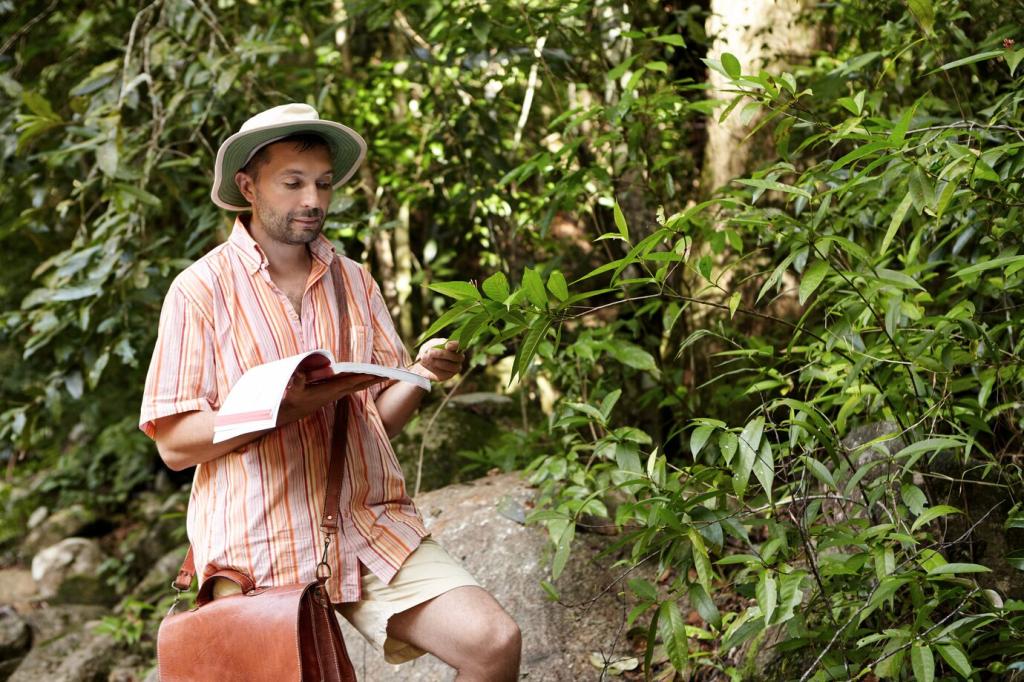Sustainable Tourism Explained
Sustainable tourism is a form of travel that seeks to minimize the negative impacts on the environment, society, and economy while maximizing the benefits for local communities and preserving natural resources. With growing concerns about the effects of mass tourism, sustainable tourism has emerged as an essential approach for protecting destinations and cultures for future generations. This page explores the core concepts, challenges, and solutions associated with sustainable tourism, helping travelers and stakeholders understand how their choices can make a meaningful difference.

Understanding the Principles of Sustainable Tourism
Protecting the environment is at the forefront of sustainable tourism. This means carefully managing natural resources and minimizing pollution, waste, and ecosystem disruption. Tourism can place heavy demands on water, land, and energy, but sustainable practices emphasize conservation, responsible use, and education. By choosing eco-friendly transportation, supporting parks and reserves, and respecting wildlife, both operators and travelers play critical roles in reducing environmental footprints and maintaining ecological health for the long term.

The Environmental Impacts of Tourism
Resource Consumption
Tourism consumes significant amounts of natural resources, especially water and energy. Large hotels, resorts, and recreational facilities often require vast supplies, stretching local infrastructure and ecosystems beyond capacity. Deforestation for development or overuse of fragile areas like beaches and mountains can lead to soil erosion and loss of habitat. Sustainable tourism advocates for careful planning, efficient resource use, and innovative measures such as green building techniques or renewable energy to lessen these impacts while maintaining a high-quality visitor experience.
Pollution and Waste
The increase in waste and pollution is a major downside of mass tourism. From plastic litter to sewage runoff and air emissions from transportation, the negative effects can be far-reaching. Sustainable tourism tackles these issues by urging travelers and businesses to reduce, reuse, and recycle, and by promoting low-impact travel methods. Initiatives such as banning single-use plastics, composting organic waste, and encouraging eco-certification of services help keep destinations cleaner and healthier for both residents and guests.
Biodiversity and Habitat Loss
Many popular destinations are rich in biodiversity—places where development and tourism must be balanced with conservation. Unregulated tourism can disturb wildlife, degrade sensitive habitats, and introduce invasive species. Sustainable tourism encourages conservation of natural areas, supporting responsible wildlife watching and funding for protected parks and reserves. By prioritizing experiences that respect natural boundaries and species, tourism can play a crucial role in protecting biodiversity and regenerating habitats rather than eroding them.

Empowerment Through Participation
Sustainable tourism involves local communities in planning and decision-making processes, ensuring their voices are heard and their priorities respected. This participatory approach helps communities steer development projects, preserve their autonomy, and take ownership of tourism benefits. By engaging residents in everything from guiding tours to managing hotels, destinations can ensure that tourism fosters community pride, strengthens social bonds, and empowers people to shape their own futures.

Economic Opportunities and Fair Growth
Tourism can drive employment and income, but only sustainably managed tourism guarantees that benefits reach as many people as possible. Supporting local entrepreneurs, artisans, and cooperatives ensures wealth stays within the community and circulates for wider development. Mechanisms such as fair wages, ethical sourcing, and training programs are essential for promoting social equity and reducing poverty. When tourists make conscious choices to support local businesses, they contribute directly to the prosperity and resilience of the places they visit.

Preserving Cultural Heritage
Sustainable tourism values the unique stories, art, and history of each destination. By promoting local festivals, crafts, and traditions, tourism can help keep cultural expressions alive and relevant. Investments in museums, landmarks, and educational programs support intergenerational transmission of knowledge and foster global appreciation for heritage sites. This form of tourism encourages cross-cultural understanding and creates bridges between guests and hosts, strengthening collective identity and pride in cultural roots.
Challenges Facing Sustainable Tourism
The popularity of certain destinations often leads to overtourism, where visitor numbers exceed the area’s capacity to host them sustainably. This strain can manifest in overcrowded attractions, traffic congestion, and diminished quality of life for residents. Managing visitor flows, enforcing limits, and developing alternative attractions are all part of the solution. By spreading tourism throughout the year or to less-visited areas, destinations can reduce pressure and help preserve the unique character that draws visitors in the first place.
Traveler Choices and Responsible Behavior
Choosing Eco-Friendly Options
Today’s travelers have a growing array of eco-friendly accommodations, activities, and transportation options at their fingertips. Choosing certified green hotels, solar-powered lodges, and carbon-neutral flights can greatly lessen your environmental impact. Seeking out operators and businesses with recognized eco-labels ensures that your spending supports best practices. Even simple actions, such as favoring public transport or biking, reduce overall emissions. Informed and intentional choices empower travelers to align their values with their travel experiences.
Respecting Local Customs and Cultures
Responsible travelers embrace local customs, language, and protocols, acting as respectful guests rather than passive consumers. Taking the time to learn about cultural norms, requesting permission before photographing people or sacred sites, and dressing appropriately helps foster positive interactions. Supporting cultural experiences that are led or endorsed by the local community ensures authenticity and fair representation. Genuine curiosity and open-mindedness go a long way in building trust and mutual respect, making tourism a bridge rather than a barrier.
Minimizing Individual Footprints
Conscious travelers pay attention to resource consumption and waste at every stage of their trip. Simple steps such as carrying a reusable water bottle, saying no to single-use plastics, and ensuring proper waste disposal can collectively make a big difference. Choosing locally sourced food, adhering to established trails, and being mindful of noise and energy use further reduce personal impact. When travelers promote and model these behaviors, they inspire others and help cultivate a broader culture of environmental stewardship.

Responsible tourism businesses develop and follow comprehensive environmental and social policies that guide every aspect of their operations. This includes efficient resource use, investing in sustainable infrastructure, and ensuring fair and safe labor conditions. Certification from reputable organizations helps recognize commitment and guides continuous improvement. By adopting best practices and advocating for transparency, businesses demonstrate that profitability and responsibility can—and should—go hand in hand.
The Role of Tourism Businesses and Operators
Policy, Certification, and Global Initiatives
Policy and Governance
Sound policy frameworks at local, national, and international levels are vital for guiding sustainable tourism growth. These policies establish guidelines on land use, visitor management, conservation, and investment in infrastructure. Well-crafted policies help align the interests of residents, businesses, and travelers, setting out clear responsibilities and expectations. Effective governance provides the structure needed to monitor impacts, enforce regulations, and respond to changing circumstances or emerging threats.
Certification and Standards
Certification systems play an important role in distinguishing genuinely sustainable businesses and destinations from those making superficial claims. Third-party certification such as the Global Sustainable Tourism Council (GSTC) standard offers measurable criteria related to environmental, social, and economic performance. These standards help travelers make informed choices, incentivize improvement, and bring credibility to sustainability claims. Regular auditing and transparent communication of results are essential for building consumer trust and driving industry transformation.
International Collaboration and Best Practices
Global challenges such as climate change and biodiversity loss require coordinated responses among countries, organizations, and stakeholders. International programs, such as UNESCO’s World Heritage Sites or the United Nations’ Sustainable Development Goals, provide frameworks and incentives for countries to cooperate and share best practices. Participating in global networks and exchanging knowledge accelerates progress, enables destinations to learn from one another, and promotes a shared vision for tourism’s role in supporting people and planet.
Join our mailing list
